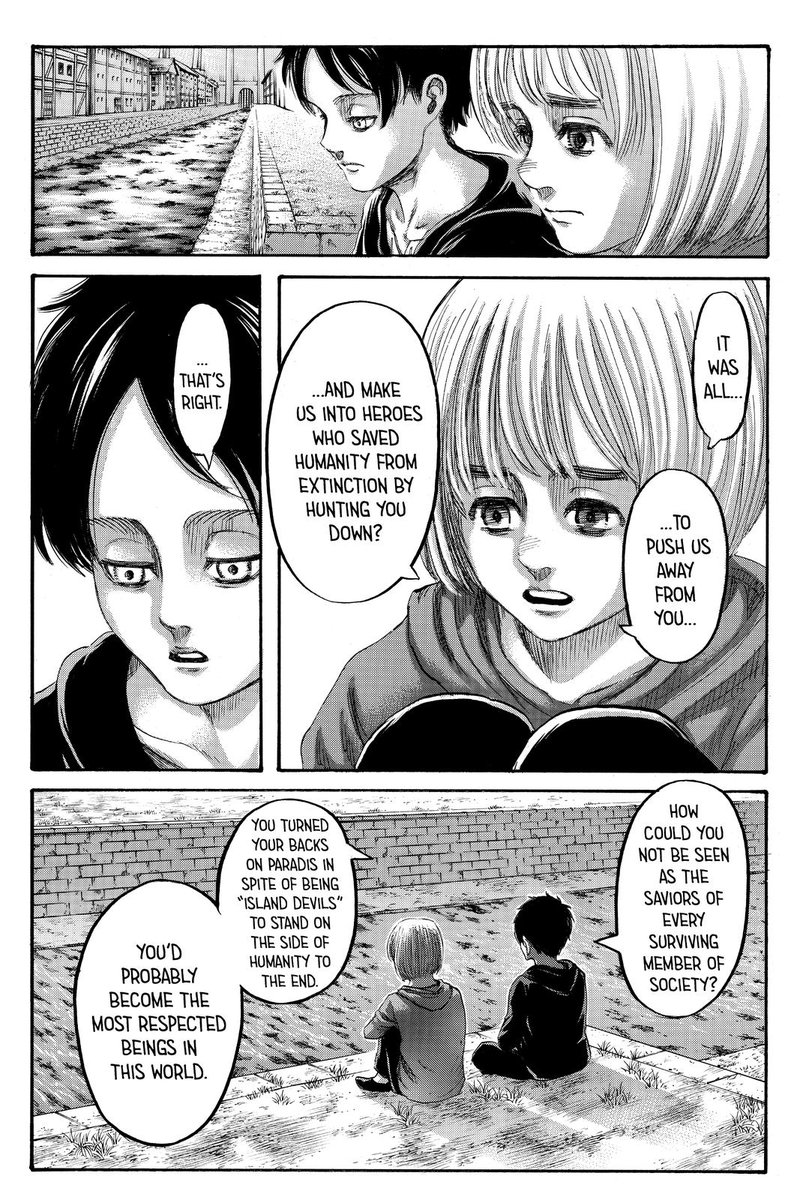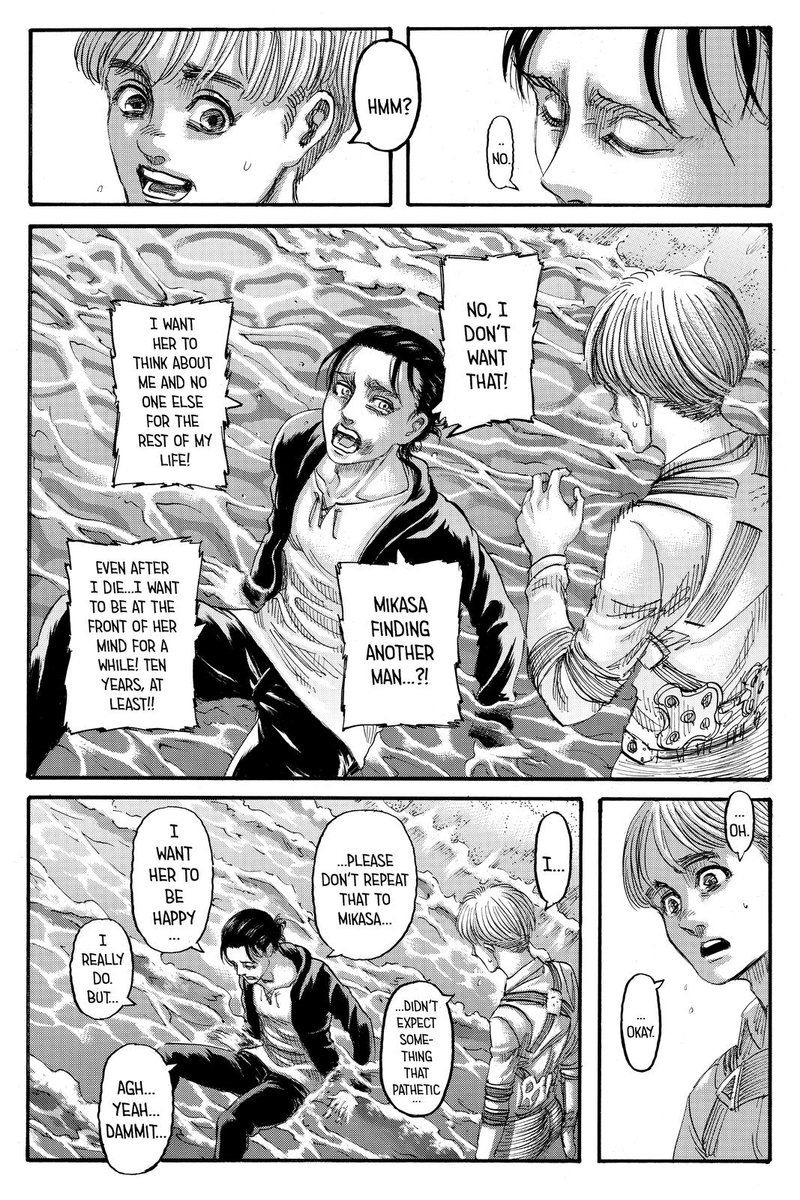#AoT139
Gonna try to be as less provocative as possible.
I think the biggest problem with the chapter is that Isayama tried to cramp in too many ideas to the point that not a single of them was executed properly and hence they completely failed to coalesce.
Gonna try to be as less provocative as possible.
I think the biggest problem with the chapter is that Isayama tried to cramp in too many ideas to the point that not a single of them was executed properly and hence they completely failed to coalesce.
I& #39;m gonna be making parallels of my perception of the ending& #39;s postulations with other series and in what way they& #39;re related. They& #39;re just my own interpretation, so don& #39;t take it at face value.
Thematically, it has the same spirit as LotGH& #39;s ending, about the cyclic nature of humanity and its actions, but while LotGH takes 100 episodes to establish the idea, AoT steers towards it with no build-up, being especially hollow because it was dealing with conflict differently.
Conceptually, Code Geass ending of "humanity& #39;s greatest adversary" is dual sided in AoT. On one hand, it does a good job pointing out the fallacies and shortcomings of that route in resolving conflict in the long run, but on the other hand, it runs several themes into the ground.
The CG ending also greatly harms Eren& #39;s character and simplifies his complexities and ideologies immensely whilst also retconning something established as impractical back in Trost.
Isayama tried to go the Light (Death Note) route with Eren by making him look like a selfish and pathetic guy (which they both always were) but the execution is so bad that it results in a complete butchering of Eren& #39;s nuance, writing, personality and characterisation.
The Armin part was... a complete mess. I don& #39;t even know what to parallel it with. When They Cry maybe? The idea of forgiveness and perspective?
The genocide dialogue, I& #39;ll be excusing as extremely poor written dialogue because it had some very ugly implications https://abs.twimg.com/emoji/v2/... draggable="false" alt="💀" title="Schädel" aria-label="Emoji: Schädel">.
https://abs.twimg.com/emoji/v2/... draggable="false" alt="💀" title="Schädel" aria-label="Emoji: Schädel">.
The genocide dialogue, I& #39;ll be excusing as extremely poor written dialogue because it had some very ugly implications
But the resolution of the Paradis conflict is inexcusable. How did the series with one of the best portrayals of deeply seated racism, origin of hate and indoctrination become this superficial that it& #39;s insinuating that just getting rid of the causation will resolve conflict?
Overall, this chapter is full of naiveties and it& #39;s bizarre that the same author who delivered such a nuanced take on a complex topic dropped the ball this hard but it is what it is, a real shame.
Very poorly written thread  https://abs.twimg.com/emoji/v2/... draggable="false" alt="😭" title="Laut schreiendes Gesicht" aria-label="Emoji: Laut schreiendes Gesicht">, can& #39;t even articulate properly.
https://abs.twimg.com/emoji/v2/... draggable="false" alt="😭" title="Laut schreiendes Gesicht" aria-label="Emoji: Laut schreiendes Gesicht">, can& #39;t even articulate properly.

 Read on Twitter
Read on Twitter






